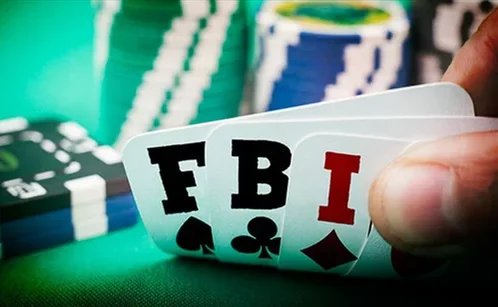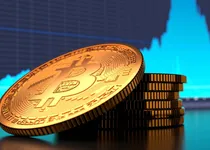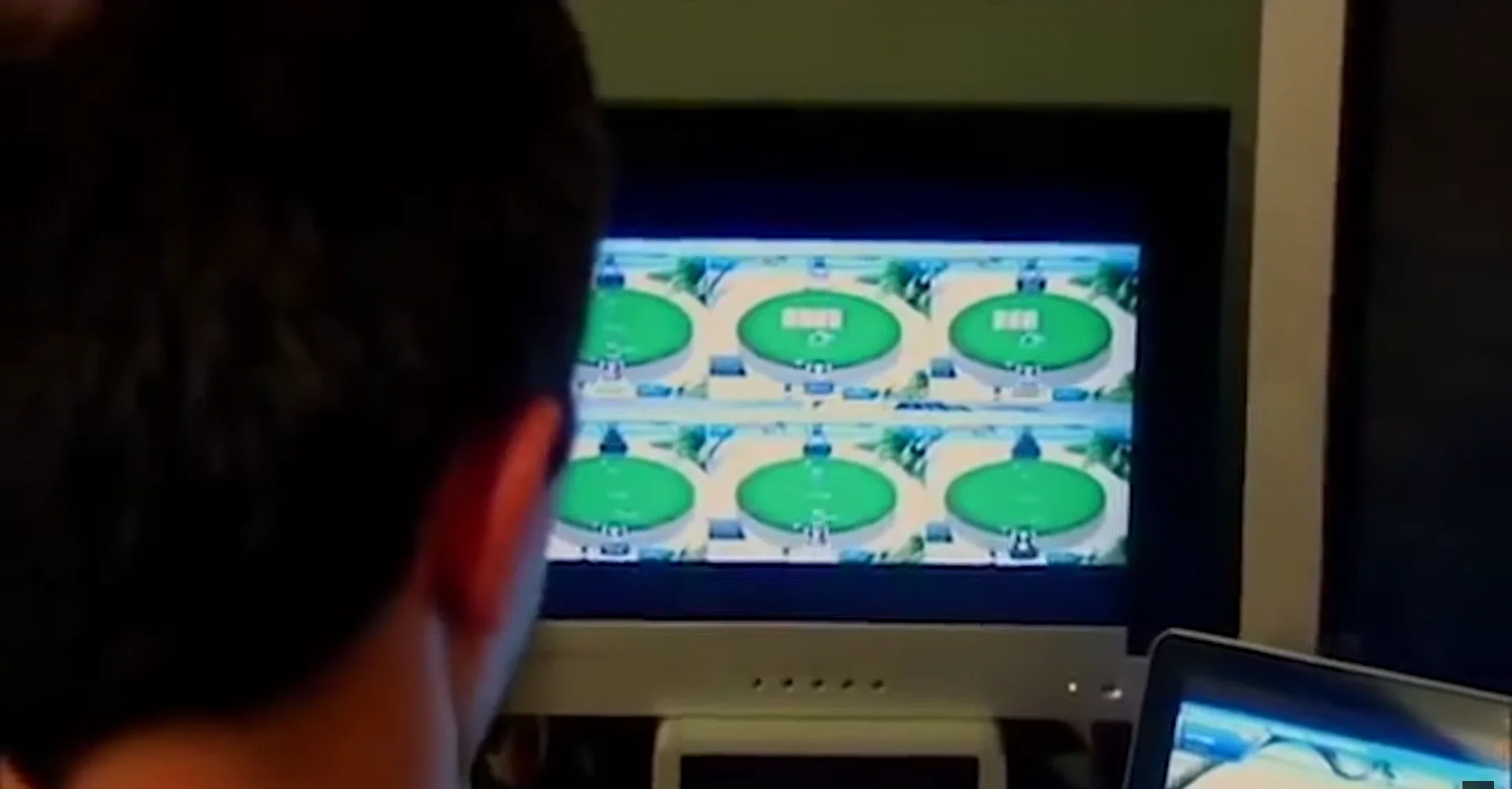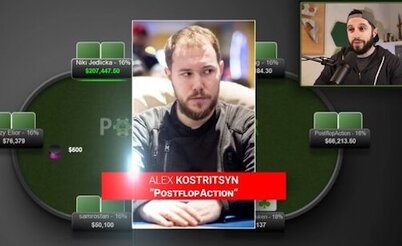Cole South
– Played under "cts687" on PokerStars, this online poker legend rose from $50 to $2 million in two years, and co-owned the first training site CardRunners.
Today marks 13 years since online poker’s “Black Friday,” when the DoJ shut down PokerStars and Full Tilt Poker.
This was one of the most impactful events in my life. Here are 3 good decisions, and 3 bad ones, I made in the aftermath.
In 2011 I was one of the top online poker pros, battling anyone and everyone at the highest stakes available. I had built up a $50 bankroll as a broke college student into millions of “Full Tilt Poker Bucks” which I naively assumed were as good as cash.
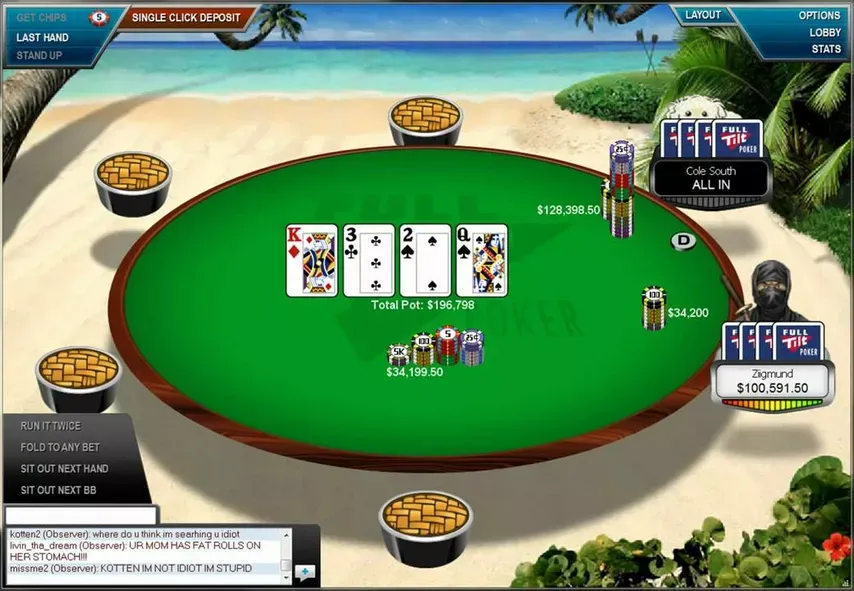
On April 15th, I went to log in at FTP. The always busy poker lobby was replaced with an FBI seizure notice.
I thought for sure the site had just been hacked or something. The image covering the homepage was a grainy 500px wide graphic that looked like it was made in MS Paint.
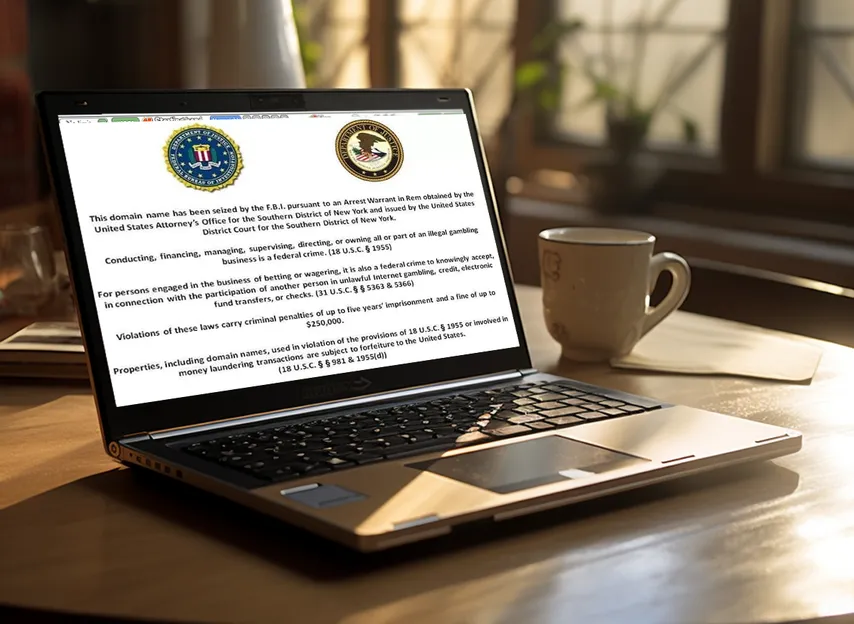
Unfortunately despite the bush league computer design skills, this seizure was legit. The biggest poker sites were offline, indictments against their executives had been unsealed, and the online poker world would never be the same.
Here's what I did next...
Good Decision 1
I quickly took action on moving to Canada. While USA players’ money was indefinitely frozen, rumblings were that “rest of world” players could still cash out without issue.
I got my butt up to Montreal, leased an apartment, set up banking, and scrambled together whatever documents I needed to establish Canadian residency in the eyes of the poker sites. My bankroll was unlocked.
This turned out to be a really fortunate move. Just a few months later, Full Tilt Poker (where I kept the majority of my online poker funds) unraveled as a Ponzi-ish scheme and what was left of player deposits was frozen. I got out in the nick of time.
Bad Decision 1
Once I unlocked my bankroll, I gambled horribly in whatever poker games were available.
My bread and butter game of Pot Limit Omaha was completely dead after Black Friday. So I decided to battle a couple of really savvy No Limit Draw specialists in a game I was badly outmatched in. I predictably lost hundreds of thousands of dollars.
I think internally I felt a sense of “found money” with my newly recovered poker money, and I just didn’t take it seriously. It would have been smart to cash out completely and take a few months to reflect before deciding what to do next.
That's a good reminder to do this in life around any sort of major transition event. It's tough... you don't want to sit there and not do anything (I would have had my cash frozen for a long time if I hadn't quickly made it up to Canada), but you also don't want to make too many rushed decisions. Still working on this!
Good Decision 2
Black Friday led me to be an early adopter of crypto. With PokerStars/Full Tilt Poker out of the picture and US regulators watching traditional payment rails like a hawk, the remaining poker sites started to turn to a weird new thing called Bitcoin to facilitate player deposits and withdrawals.
Most people were extremely skeptical of Bitcoin at the time, but I was open minded enough to use it as long as it enabled my online gambling addiction, err I mean profession.
Some of these early crypto poker games were incredibly juicy. I was battling against dark web drug dealers who had more Bitcoin than they knew what to do with, and no clue how to play cards. Most pros didn't make it over to these games due to the friction and mental leap required to play crypto denominated poker in the early 2010's. Back then Bitcoin wallets were soooo clunky, exchanges sucked, and in general crypto was a very fringe corner of the internet.
Bad Decision 2
I had complete tunnel vision on poker and never zoomed out to see if this crypto thing might have had legs on its own.
In 2013, I thought Bitcoin was awesome because it allowed me to continue to play online poker. I saw how useful it was for financial transactions. But I never really drank the Kool-Aid or did enough digging to see that maybe crypto is an area I should be investing my time or money into.
Despite buying and selling lots of sub-$1000 Bitcoin, I basically totally missed out on the appreciation in crypto's earliest cycles.
Good Decision 3
I branched out from playing just the top 2 poker sites (PokerStars and Full Tilt) to sites 3-10, with huge success.
Most of the very best poker pros exclusively played on PokerStars and Full Tilt. After Black Friday though, the online poker market became more and more fragmented.
Now that I was set up with Canadian residency, I attacked the tables on sites like 888 Poker/iPoker/Microgaming hard. These games were a little under the radar, but they were plenty big and could be very soft. They made 2013-2015 some of my most profitable poker years.
Bad Decision 3
I stayed in the poker world for too long. Poker was a huge part of my life, and I loved it. But I should have moved onto something else earlier.
When I did finally leave poker completely and move on to start my e-commerce business, I realized how burnt out I had become. Learning something new was super rejuvenating even if it meant starting over as a microstakes player in a new game.
It's also been nice to work in an industry that is less of a nonstop dopamine rush up or down. I think gambling for a living is pretty bad for your brain, at least for 95% of people (including myself).
Anyways, it's crazy that Black Friday was so long ago. In some ways logging in and seeing that FBI seizure notice feels like yesterday. In others, poker seems like a lifetime ago for me.
Daniel Zach
– WSOP 2022 Player of the Year, winner of three World Series bracelets.
In the twitter theme of posting about Black Friday’s 10 year anniversary: Black Friday might have saved my life. At the time I was 8 years into crippling gambling addiction & depression, constantly stealing my parents credit cards and running the account to zero again and again while staying up til 6am on school nights. Despite an endless negative feedback loop I was convinced I was going to turn it around and become a professional, and secretly planned to skip college for online poker.
Black Friday forced me to abandon that plan and for the first time in nearly a decade poker wasn’t the dominant use of my time.
I feel strongly looking back that I wouldn’t have made it had that cycle continued, and I’m so grateful for that break and everything that came with it. I think it’s always important to remember when discussing the legality around these types of things that these types of dark cases do exist, and not to dismiss them entirely.
Happy anniversary
Alec Torelli
– "Traheho", a famous online professional of the 2000s, and now a live player and poker entrepreneur.
13 years ago, on Poker Black Friday, online poker was shut down overnight and our funds were frozen.
I had just moved to Italy after selling everything I owned, including my M6 BMW, and put everything into a 79L backpack.
I woke up one day, logged on, and saw the following message:
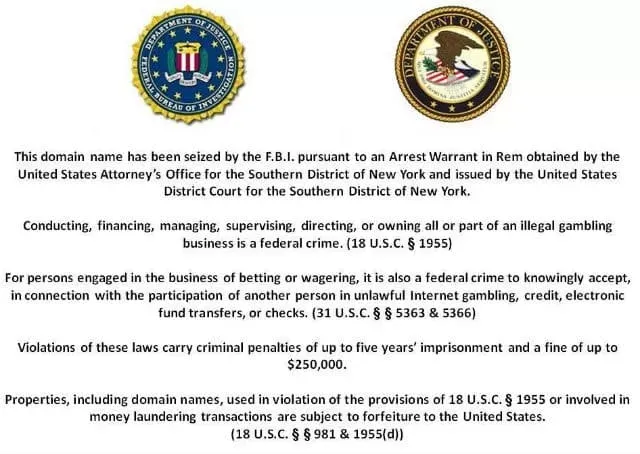
Like many poker pros, I was confused and concerned.
Would we ever get our money back?
What did this mean for online poker?
What would I do next?
Truth be told some part of me was relieved. I moved to Italy to rediscover my roots and get away from my fast-paced life in Vegas.
I knew that meant downsizing, hence selling everything. What I didn't know was that would mean I wouldn't play much poker for those 6 months, but I guess that was in the cards.
So, I decided to spend the rest of my time in Italy writing, reading, and learning new things, ultimately doing what felt right.
As luck would have it, I met a woman who ended up becoming my wife.
I returned to Vegas in the summer for the WSOP, and after the series concluded, was looking for the next opportunity.
That's when I heard about a few friends of mine who had just returned home from this obscure Chinese island called Macau, off the coast of Hong Kong.
I had been there several years before, but poker had yet to open. Now, things were different. China was exploding and it was clear this was the next frontier.
Word on the street was that white guys, (referred to as "gweilos") were banned after one famous pro won all the money.
Fortunately, we were close friends and I learned this wasn't true, it was merely what they were telling everyone back home so that other players didn't swarm to Macau and make the games tougher.
"Chinese New Year is coming up," my friend told me, “And it's going to rain money".
Basically, they found a gold mine. Why tell the world?
I canceled my trip to Australia for the Aussie Millions and instead booked a one-way flight to Hong Kong.
When I arrived, I met my friend at his condo, which we would end up living in together for the next 4 years.
I walked into the Wynn, the premier poker room in Macau, which would become my office of sorts, the place I'd spend thousands of hours grinding.
On my first hand, I call a raise with 77 and get it all in on a J73 board vs. King-Ten. I have no idea what the guy was doing, but apparently, he didn’t either.
It was the first of many ridiculous hands that I would play over the years in Macau.
When Chinese New Year rolled around, I remember walking into the Wynn and seeing three $1,000/$2,000 NL games (equivalent to USD 125/$250), and one of my friends at each of the tables.
I sat at the third and realized then and there that this was PartyPoker 2.0, and something I'd never see again in my career.
After having gone broke before (I won and lost $1M when I was 19 and 20), I had now built my way back up and had the maturity to capitalize.
I'd like to say the rest was history, but there were many ups and downs, an insane amount of grinding and stress, and there were moments that seemed like all hope was lost, and it all could have gone awry.
Nevertheless, those early days of Macau were some of the many fond memories I have of some of the most enjoyable years of my poker career.
I intend to put this all together in a book in the future called “The Big Game”, and this is one of the many wild stories that I hope to tell.
Should I finish writing it?









